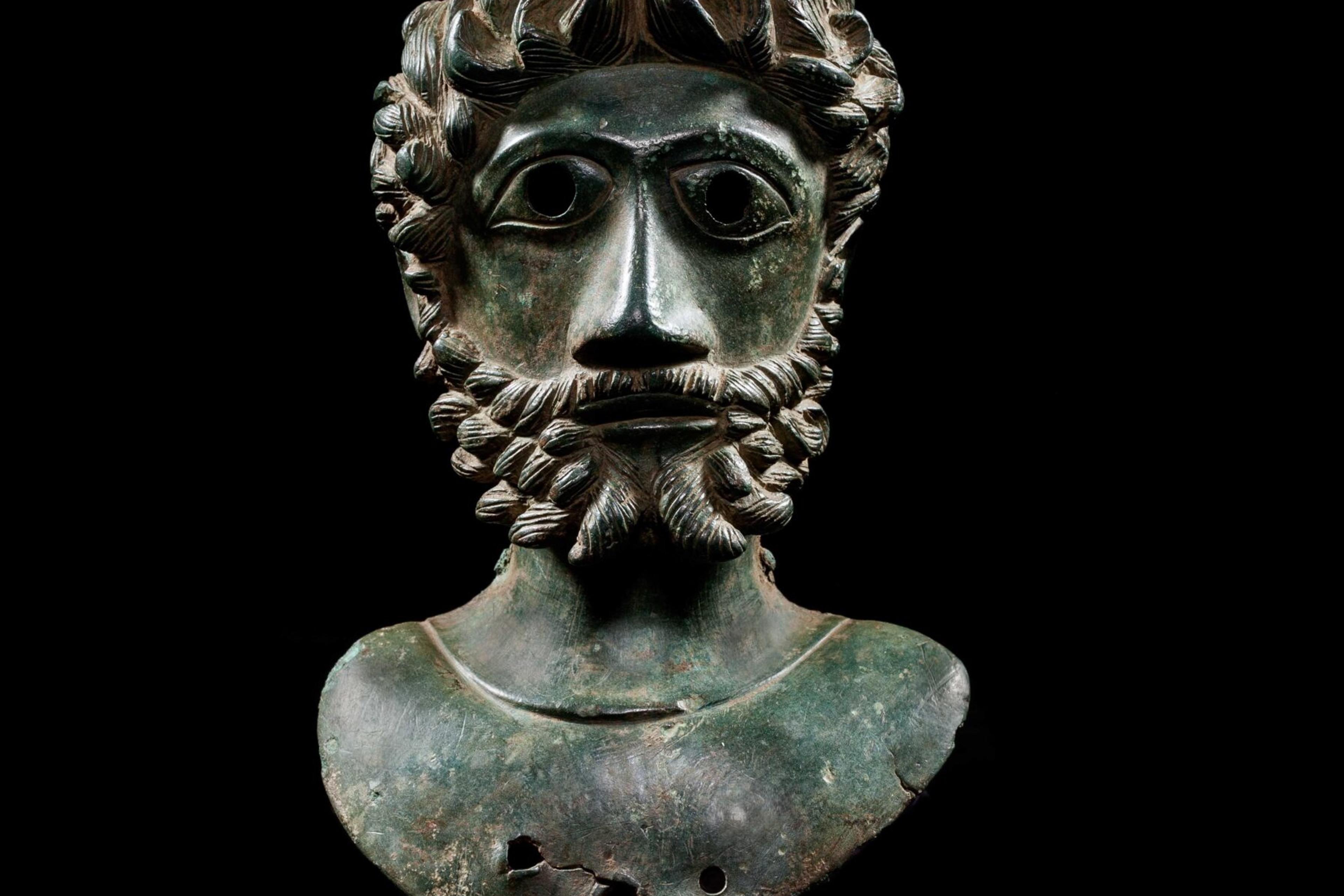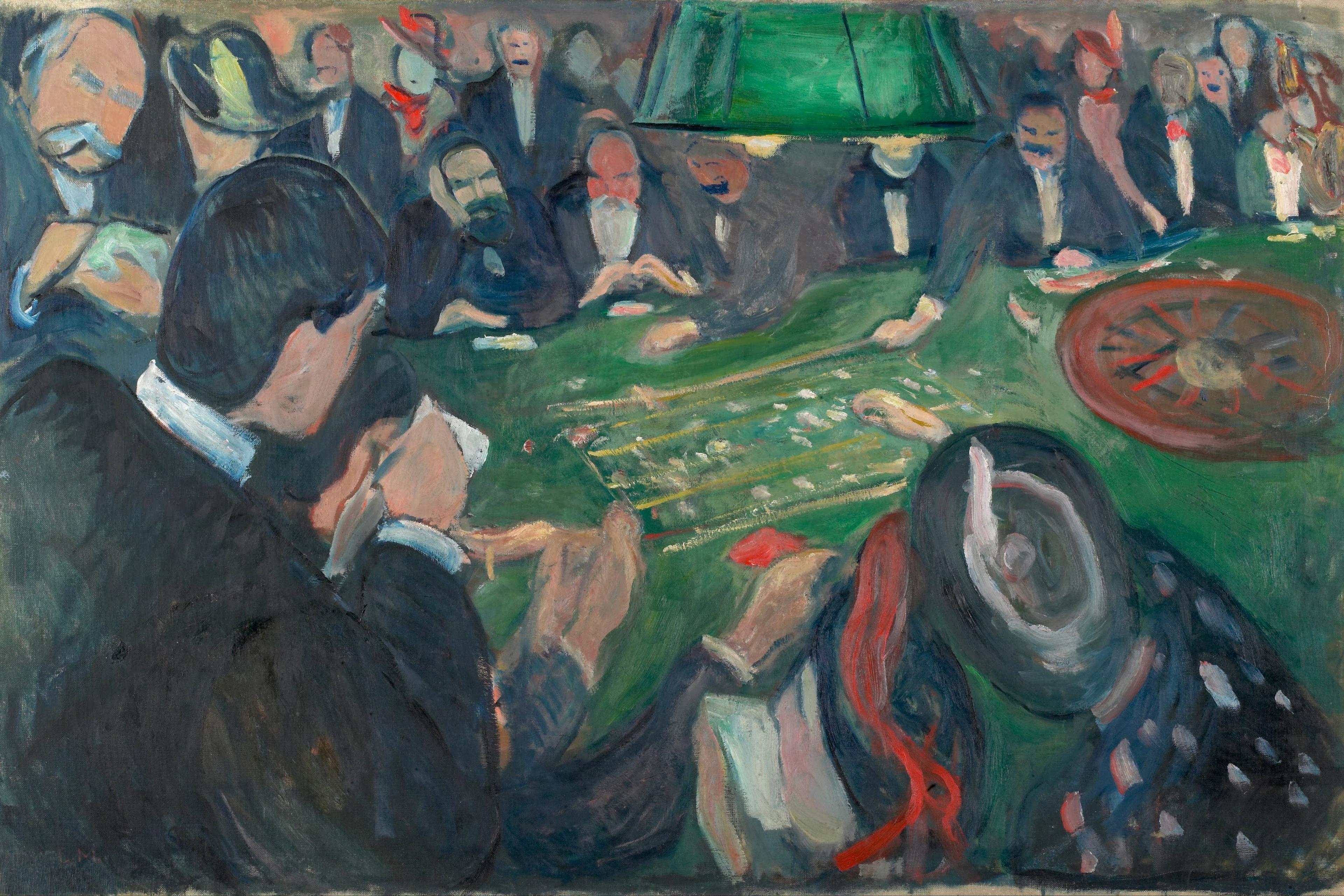At your next dinner party, if you have a sudden whim to inspire existential horror in your guests, you could do worse than invoke the concept of determinism. This is the proposal that all events, including our actions, are determined by pre-existing causes. Accordingly, determinists have argued that the standard conception of free will is nothing more than an illusion, as the workings of our mind are simply the product of a causal sequence that kicked off with the Big Bang.
It’s not hard to grasp why people can find this idea confronting. If it’s true, it would seem that we are all merely puppets on the strings of a gelid, inhuman Universe, with no real freedom to choose what to eat for breakfast, let alone whom to love. Moreover, determinism seems to open up a moral chasm at our feet: how can we heap blame upon Jeffrey Dahmer and blessings on Mother Teresa if both are products of a cosmic formula beyond their control?
Indeed, it’s hard to find a sceptic of determinism who isn’t also anxious about its moral or emotional implications. To put my cards on the table, I’ve never encountered what I found to be a persuasive argument for free will. And as a psychologist, I can’t help wondering whether deniers of determinism might be motivated, at least in part, by the sheer aversiveness of the idea. In this case, perhaps an account of the personal benefits of determinism could be more persuasive than trundling out yet another set of conceptual arguments for why it must be the case.
Detailing the consolations of a clockwork Universe is not just an academic exercise. In my practice as a therapist, I’ve seen patients who adopt a deterministic worldview become more empathic, less angry, more socially conscious and less inclined to struggle needlessly against the vicissitudes of life. Rather than something to be feared, determinism could be personally, positively transformative for many. While it can be a hard pill to swallow, it may, once fully digested, result in a range of emotional benefits – like a kind of metaphysical Zoloft.
A life less angry
Recognising that people’s actions were predetermined can result in a much calmer reaction to perceived wrongdoing. Anger relies on the assumption that someone could have acted other than how they did (which is why angry people are so passionate about instructing you on what you could have done differently). However, when seen in the light of determinism, the assumptions of the angry mindset melt away like so much sorbet in the sun.
A patient at our centre, David, worked at an international organisation and had gained a reputation as a brilliant but irascible colleague. (The name and some details in this and other cases have been altered to ensure anonymity.) He was often so incensed by the perceived incompetence of his workmates that he ruminated his way through his commute home and slept poorly at night. How could they all be so inept, unprofessional and, well, just plain dumb?
If people’s actions are not freely chosen, it doesn’t make sense to be angry at them
In therapy, we began from the assumption that his colleagues’ behaviour, like all phenomena in the Universe, had a set of causes that brought it about. David came to realise that his colleagues’ supposed blunders and failings were underpinned by a range of factors beyond their control, such as their natural talent (or lack thereof), educational background, sensitivity to stress, workload at the organisation, and so forth. Some of the factors involved may indeed have been chosen – for instance, they all chose to work at this organisation – but were they chosen freely? Any choice relies on motivation, and while we do all make choices, we can’t choose what is motivating us to make a given choice.
If people’s actions are not freely chosen, it doesn’t make sense to be angry at them – any more than it does to be angry at someone for anything outside their control, such as having green eyes, or the hiccups. This doesn’t imply that you can’t try to change the world, and occasionally even succeed. But if you are motivated by anger, you’re more likely to focus on punishing the perceived offender – often at your own expense – rather than on a useful prosocial outcome.
A remedy for guilt and shame
The emotion of guilt relies on the understanding that you have done something wrong (which may have harmed others), while that of shame assumes there is something wrong with you personally. Guilt and shame can occasionally be helpful emotions. If you went paintballing instead of attending your aunt Hilda’s birthday, these emotions might inspire you to pop round with some geraniums and an apology. However, in more cases than not, guilt and shame lead to unnecessary self-critical rumination.
Ksenia was a web developer and refugee from the Ukraine war, who became a pro bono patient at our therapy centre. The war was only the most recent in a long chain of tragedies in her life, including a parent’s alcohol addiction, persecution for her sexual orientation, several abusive relationships and a social context that had not allowed her to reach her potential. Ksenia felt like a hopeless underachiever, was relentlessly self-critical, and felt guilty about not supporting her parents. If she had always been free to choose her destiny, then it seemed she had only herself to blame for any lack of wealth or career achievement.
In the throes of guilt and shame, people often imagine themselves as free agents who have chosen from a smorgasbord of possible behaviours and personal qualities, and so it follows that they deserve any karmic indigestion that ensues. Once Ksenia absorbed the idea that her life was always going to play out precisely the way it had, her shame and guilt dissipated. If the conditions of the Universe had not allowed her to become anything other than who she was at that point, how could she reasonably blame herself for it? And by situating her life’s path within a larger causal roadmap, she realised she had done pretty darn well for a gay woman from the backwoods of post-Soviet Ukraine. While Ksenia still had problems to resolve, she could do this without the added burden of self-condemnation.
An enlightened view of pride and privilege
Those who walk the path of determinism acquire a certain detachment not only from their failings but also from their virtues. Whatever you achieve in life, be it the Fields Medal or the prize for best pumpkin strudel at your local church fête, these must be recognised as a confluence of factors beyond your control.
This insight proved useful to Hugh, who had grown up in a rust-belt town in the United States and worked his way into a stupendously lucrative tech job. His achievements were proof, he claimed, of his superior willpower and exceptional talents. People who failed to reach his level of success deserved nothing but scorn, which he supplied in ample quantities.
Seen from a deterministic perspective, Hugh’s position is quite clearly unjustifiable. Indeed, some of history’s greatest achievers, who could perhaps have been forgiven for a bit of narcissistic glory-basking, understood the nugatory role they played in their own success. In a 1929 interview with The Saturday Evening Post, Albert Einstein opined: ‘My own career was undoubtedly determined, not by my own will but by various factors over which I have no control … I claim credit for nothing.’
This doesn’t negate the value of putting in effort and making well-informed decisions
Such a worldview provides a powerful check to pride and arrogance. By working through these ideas in therapy, Hugh was left with something far more precious than self-aggrandisement: a sense of gratitude. On a deterministic worldview, anything good that happens to you feels like a blessing – like a wondrous gift you are granted, rather than a paycheck you have earned.
Naturally, this doesn’t negate the value of putting in effort and making well-informed decisions. These actions continue to enhance the likelihood of reaching your goals and shaping the life you desire. However, this does mean that your efforts and choices are events that cannot ultimately be attributed to your individual volition, and so it’s not reasonable to take credit for them.
Determinism can thus also provide a powerful slap in the face of privilege. To realise that your position in society was not earned freely or deserved, but simply granted by the Universe, is to feel the moral landscape shift beneath you. On what moral grounds, then, is privilege retained by the few, rather than shared with the many?
Increased empathy for others
A deterministic view of human behaviour is a scientific view, insofar as it endeavours to understand a phenomenon by explaining how it came about. One satisfying byproduct of this approach is a deeper sense of empathy. Having gone to the trouble of examining the causes of someone’s behaviour, you can end up learning an awful lot about them in the process.
This perspective helped a teenage patient, Jen, whose parents were doing everything in their power, including sending her to therapy, to stop her from smoking weed with her friends. Jen’s view was that her parents were simply killjoys who didn’t understand young people. In session, we dug down to the roots of her parents’ concerns, including their own strict upbringing and the instinct to protect their young that human parents share with most other mammals. While Jen still didn’t agree with her parents’ injunction, she came to understand that it represented an act of love, which allowed her to open up a more productive dialogue with them.
It takes a certain intellectual courage to embrace determinism and a worldview of causal complexity
Taking a causal approach to people’s actions could also help to offset the cognitive bias known as the ‘fundamental attribution error’ – a tendency to overestimate how much someone else’s behaviour is due to who they are (eg, ‘He’s just a mean person’) and to neglect the role of contextual factors (eg, he felt insulted by comments someone made). A deterministic view of behaviour encourages us to extend to all humans the degree of understanding that we might normally reserve for ourselves.
Free will, by contrast, sets you apart from others, assuming that we are all separate entities endowed with self-determination and untrammelled by the normal laws of the Universe. If you are independent from the rest of the world in this way, that might seem to imply that you can manipulate the world with no harm to yourself. One might even see belief in free will as a secret ingredient in an ideology of individualism that justifies the exploitation of the natural world, and of other people.
It takes a certain intellectual courage to instead embrace determinism and a worldview of causal complexity. But it also offers enormous promise: a clearer vision of your place in the Universe, freedom from unnecessary anger, pride, guilt and shame, and a deeper empathy for fellow humans and their struggles. Determinism may also encourage us to see our own lives and interests as inextricably yoked to those of others – and to do less harm, and more good.








